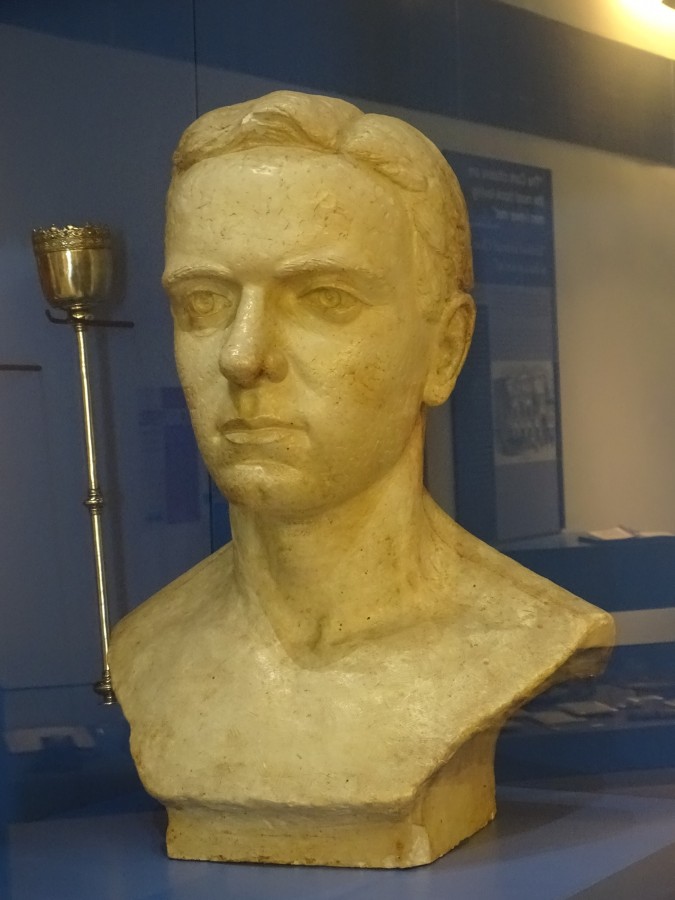Kieran’s Our City, Our Town Article,
Cork Independent, 16 April 2020
Remembering 1920: Coroner James McCabe Speaks
One hundred years ago, the Tomás MacCurtain inquest was the most significant inquiry of its kind ever held in Cork City. The verdict, which was given on 17 April 1920, was the most startling ever pronounced by a coroner’s jury in the British Empire.
The inquest comprised 14 sessions from 23 March to 17 April 1920. Coroner James J McCabe read out the verdict was as follows: “We find that the late Alderman Tomás MacCurtain, Lord Mayor of Cork, died from shock and haemorrhage, caused by bullet wounds, and that he was wilfully murdered under circumstances of the most callous brutality, and that the murder was organised and carried out by the Royal Irish Constabulary, officially directed by the British Government, and we return a verdict of wilful murder against David Lloyd George, Prime Minister of England; Lord French, Lord Lieutenant of Ireland; Ian Macpherson, late Chief Secretary of Ireland; Acting Inspector-General Smith, of the Royal Irish Constabulary; Divisional Inspector Clayton, of the Royal Irish Constabulary; District Inspector Swanzy, and some unknown members of the Royal Irish Constabulary. We strongly condemn the system at present in vogue of carrying out raids at unreasonable hours. We tender to Mrs MacCurtain and family our sincerest sympathy in their terrible bereavement; this sympathy we extend to the citizens of Cork in the loss they have sustained by the death of one so eminently capable of directing their civic administration
Apart from the verdict there are many voices in the 70,000 word transcript of the inquest, which I recently compiled with news editor John O’Mahony and the Irish Examiner to create the publication Witness to Murder. The voices of the 90 interviewees are a very important part of the inquest but so also was the work of the chair Coroner James McCabe and his jury. Whilst researching the proceedings of the 14 sessions of the inquest you can read how Coroner James McCabe tried to remain calm remain and thorough, in what was a raw and emotional time inside the inquest’s location at the old City Hall and outside in a city, which was unstable with tit for tat attacks by the IRA and the growing swathes of Black and Tan auxiliaries in the city.
James McCabe handled all interviews of witnesses, solicitors and police officials alike with calmness, dignity and courtesy. He was always helpful and courteous to the journalists present too and was held in high esteem amongst its members. In his final conclusions at the inquest James McCabe reminded the jury that they had heard from the witnesses what occurred in the house on the night of the 19 March when the Lord Mayor was murdered. They also had the depositions of witnesses as to what occurred in the streets on that night, both at Blackpool, King Street and St Patrick’s Hill, and also as to what was stated to have occurred on the night of 20 March. The Royal Irish Constabulary authorities had put in a large number of depositions on the policing arrangements in the various police barracks, the patrols of the men of those barracks and of their weapons and motor cars and other movements. The police authorities had also put in books and documents connected with such matters. All those depositions were available for the members of the jury, if they desired to refresh their memories on any portion of the evidence given at the inquest.
The background of James McCabe is also as interesting as his involvement in the Tomás MacCurtain Inquest. His obituary in the Cork Examiner on 17 September 1949 details that James was born in Midleton, County Cork, in 1862. He received his education in his native town and at an early age became clerk to the firm of Messrs Blake, solicitors, Cork, where he showed a deep interest in his work and soon became versed in the principles of law.
James took up studies in Law at Queens College, Cork, where he was popular amongst his professors and fellow students alike. A prominent member of the Cork Catholic Young Men’s Society, he participated in the Amateur Theatrical Association attached to the Society at the time. He ended up dividing his time between reading for his legal examinations and appearing in dramatic productions by the Young Men’s Society. In both he was most successful, being a most admired figure on the stage, whilst he completed his legal studies with distinction and became a solicitor in 1897. He soon became one of leading legal figures in the city and enjoyed a large practice which he kept right through his career.
James was also deeply interested in the welfare of his country and a Nationalist and Home Rule supporter. On behalf of John Redmond, he addressed a large number of meetings during the campaigns in the city with his speeches being known for being thoughtful, forceful and sometimes quietly humorous. He acted as election agent for many Redmondite candidates, including Mr Augustine Roche, when he successfully contested local elections in Cork and became Lord Mayor of Cork in 1904.
In 1911 James McCabe was appointed City Coroner and as can be seen across the southern regional newspapers oversaw a myriad of inquests in Cork City during the Irish War of Independence and during the Irish Civil War. Despite his political leanings, he remained politically impartial in his work. In 1934, he was elected to the office of president of the Southern Law Association – an office which he held with distinction. He lived at Bellevue Terrace, Tivoli for many years. After his death in 1949, his son Joseph McCabe succeeded him as City Coroner for over two decades.
Caption:
1044a. Bust of Tomás MacCurtain by Cork sculptor Seamus Murphy, on display in Cork Public Museum (picture: Kieran McCarthy).
